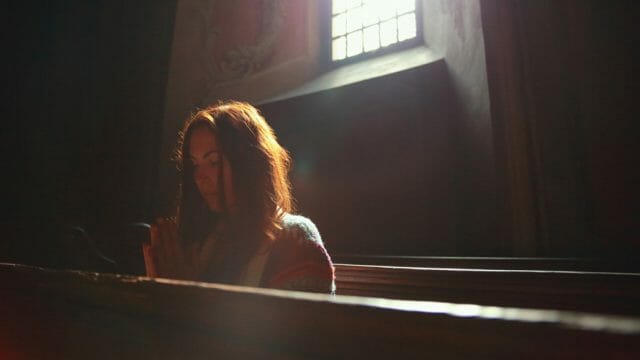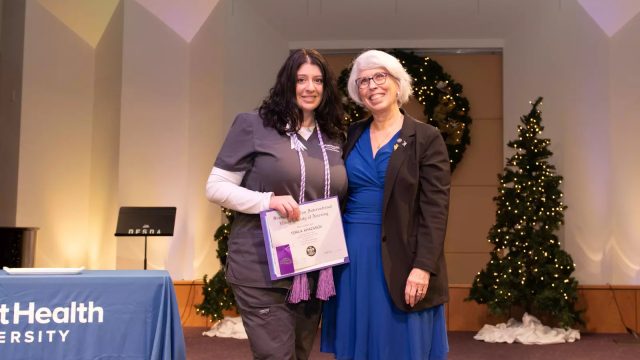The answer might surprise you.

What did Ellen White counsel about observing Christmas? Noting her prophetic gift, some today might expect her to shun Christmas. They trace Christmas through the Roman Catholic Church back to paganism, which gave rise to the December 25 date and various other customs. They find no biblical command or example to observe the birth of Jesus, and they see little that reflects or honors the Master in the usual celebrations of Christmas.
Ellen White was aware of these concerns, but they did not lead her to reject Christmas. While she acknowledged that “the Bible does not give us the precise time”¹ of Jesus’ birth and “there is no divine sanctity resting upon the twenty-fifth of December,”² she did not urge us to ignore the day. Rather, she said that “it can be made to serve a very good purpose,”³ and she urged parents to turn “the minds and the offerings of their children to God and his cause and the salvation of souls.”⁴
“Christmas is coming,” she wrote. “May you all have wisdom to make
it a precious season. Let the older church members unite, heart and soul, with their children in this innocent amusement and recreation, in devising ways and means to show true respect to Jesus by bringing to Him gifts and offerings. Let everyone remember the claims of God. His cause cannot go forward without your aid. Let the gifts you have usually bestowed upon one another be placed in the Lord’s treasury.”⁵
GIFT-GIVING?
Does this mean that we shouldn’t give each other gifts? Not necessarily. “Brethren and sisters, while you are devising gifts for one another, I would remind you of our heavenly Friend, lest you should be unmindful of His claims. Will He not be pleased if we show that we have not forgotten Him?”⁶ She saw purpose in both kinds of giving, one that recognizes family and friends, and the other that honors our Saviour. “It is right to bestow upon one another tokens of love and remembrance if we do not in this forget God, our best friend.”⁷
The gifts we give to one another should be useful and helpful. “We should make our gifts such as will prove a real benefit to the receiver. I would recommend such books as will be an aid in understanding the Word of God or that will increase our love for its precepts.”⁸ Other kinds of gifts, carefully chosen, may also be a benefit to the recipient.
Ellen White’s view of holiday gift-giving is clearly a departure from custom. It puts Jesus first. If this requires scaling back on gifts to each other so that we may give where God would have us direct the funds, we will be the stronger—and happier—for having done so. “Come, brethren and sisters, come with your children, even the babes in your arms, and bring your offerings to God according to your ability. Make melody to Him in your hearts, and let His praise be upon your lips.”⁹
TEACH THE CHILDREN
Won’t children be disappointed if we make changes like this? Ellen White, a wise and experienced mother, had thought about this. “There are many things which can be devised with taste and cost far less than the unnecessary presents that are so frequently bestowed upon our children and relatives, and thus courtesy can be shown and happiness brought into the home.
“You can teach your children a lesson while you explain to them the reason why you have made a change in the value of their presents, telling them that you are convinced that you have hitherto considered their pleasure more than the glory of God. Tell them that you have thought more of your own pleasure and of their gratification and of keeping in harmony with the customs and traditions of the world, in making presents to those who did not need them, than you have of advancing the cause of God.
“Like the wise men of old, you may offer to God your best gifts and show by your offerings to Him that you appreciate His Gift to a sinful world. Set your children’s thoughts running in a new, unselfish channel by inciting them to present offerings to God for the gift of His only-begotten Son.”¹⁰
THE CHRISTMAS TREE
Ellen White did not forbid the Christmas tree, even urging that such a tree be placed in the church and adorned with special “decorations.” When many of our congregations struggled to have a church building, she wrote:
“God would be well pleased if on Christmas each church would have a Christmas tree on which shall be hung offerings, great and small, for these houses of worship. . . . Let its boughs be laden with the golden and silver fruit of your beneficence, and present this to Him as your Christmas gift. Let your donations be sanctified by prayer.”¹¹
The principle may apply to helping other aspects of the Lord’s work as well, such as ministry to the needy. “Christmas and New Year celebrations can and should be held in behalf of those who are helpless. God is glorified when we give to help those who have large families to support.”¹²
Some may ask, “Isn’t a Christmas tree forbidden by Jeremiah 10:1-5, which speaks against cutting a tree and decorating it with gold and silver?” Verse 3 refers to the one who takes the axe to the tree as a “craftsman” (RSV),¹³ translating a Hebrew word that means “artificer, engraver.” This passage refers to fashioning an idol, one that cannot walk or speak and must be carried, and which a person need not fear (verse 5). It deals with false gods rather than Christmas trees.
How may we best celebrate Christmas? Ellen White challenges us to make our Lord the focus of it, reserving our best gifts for Him. We will be blessed when we observe it that way.
¹Ellen G. White, The Adventist Home (Nashville: Southern Pub. Assn., 1952), p. 477.
²Ellen G. White, in Review and Herald, Dec. 9, 1884.
³E. G. White, The Adventist Home, p. 478.
⁴Ibid.
⁵E. G. White, in Review and Herald, Dec. 9, 1844.
⁶E. G. White, The Adventist Home, p. 480.
⁷Ibid., p. 479.
⁸Ibid.
⁹Ibid., p. 480.
¹⁰Ibid., p. 481.
¹¹Ibid., p. 482.
¹²Ibid.
¹³Bible texts credited to RSV are from the Revised Standard Version of the Bible, copyright © 1946, 1952, 1971, by the Division of Christian Education of the National Council of the Churches of Christ in the U.S.A. Used by permission.








